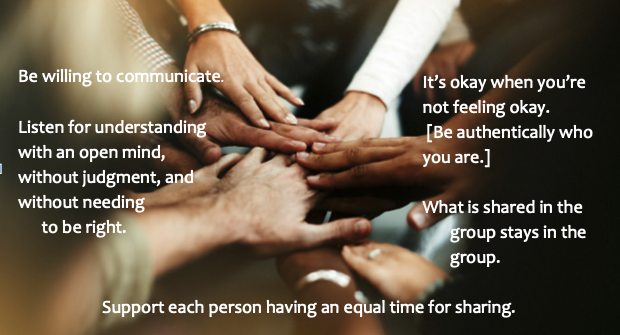TRUST – THE FOUNDATION OF EFFECTIVE ORGANIZATIONS
TRUST – THE FOUNDATION OF EFFECTIVE ORGANIZATIONS

Trust –
In Awakening Wisdom, we realize that the most impactful element on a school’s campus is the modeling done by the adults. When adults model the very behaviors that they desire in their students, like compassion, courage, and integrity, those qualities are more likely to show up in their students.
Our founder, Sr. Joan Madden, said, “You don’t just teach subjects; you teach who you are.” This means that the educators must grow their own social emotional skills and that can only happen, if the school’s culture is a psychologically safe space to take risks, to own mistakes, and to have the courage to be authentic.
Google conducted a two-year search, called Project Aristotle, to discover what makes a great team. It wasn’t similar personalities nor people who got along with each other. It came down to psychological safety – where team members felt emotionally safe to share on a deep and vulnerable level. This increased their productivity and creativity.
In our work with schools, we know that the real power for school transformation happens in the internal landscape of individuals. To explore this landscape, educators need to feel psychologically safe to consider unexamined assumptions about themselves, their students, and their colleagues that limit their potential and their ability to work well with their students and colleagues.
Early on in our Awakening Wisdom Foundations course, we lead educators through a process to create Trust Agreements, agreements about how they will behave with one another to build trust and create a psychologically safe space to rediscover their power and wisdom.
Guiding a group of educators in a public school in Hawai’i through the development of Trust Agreements resulted in these agreements chosen by the group:
- Be willing to communicate
- Listen for understanding with an open mind, without judgment, and without needing to be right
- It’s okay when you’re not feeling okay. Be authentically who you are.
- What is shared in the group stays in the group.
- Support everyone having equal time to share. This was added after watching a video on Google’s Project Aristotle where equal sharing time and ostentatious listening were the necessary elements of the best teams.
The level of psychological safety in the group has grown so that they are able to be trusting enough to engage in the discomfort of exploring and shifting limiting mindsets toward empowering ones so that they are better able to respond to the challenges of teaching through a pandemic.
Here are a few examples of the wisdom they have acquired :
- I believe the 30-day habit of mind change will really help me with both my professional and personal growth. I am not very confident in myself and my ability and I hope that I will be able to change my thought process through these 30 days. Instead of saying “I am not good enough,” I can say “I am doing the best I can.”
- All of these topics have helped me with my SEL. I have been able to set goals for myself, learn about how to help my students feel needed/belonging, and have been given so many resources in what to do when things don’t go my way. I know I’m only in the beginning stages of this cohort, but I truly believe that this program will change my students’ lives and will help shape their future.
This quality of transformative growth can only happen when people work in a culture that is psychologically safe to grow their authentic, wise selves. Trust Agreements is a tool that creates an environment where people can thrive.
WELCOME
Awakening Wisdom is based on the Ho`āla Educational Philosophy, founded in large part by Sr. Joan Madden, BVM, and has been finely tuned over the past 42 years at three schools, Our Lady of Sorrows and Ho`āla School, both in Wahiawa, HI, and River School in Napa, CA.
